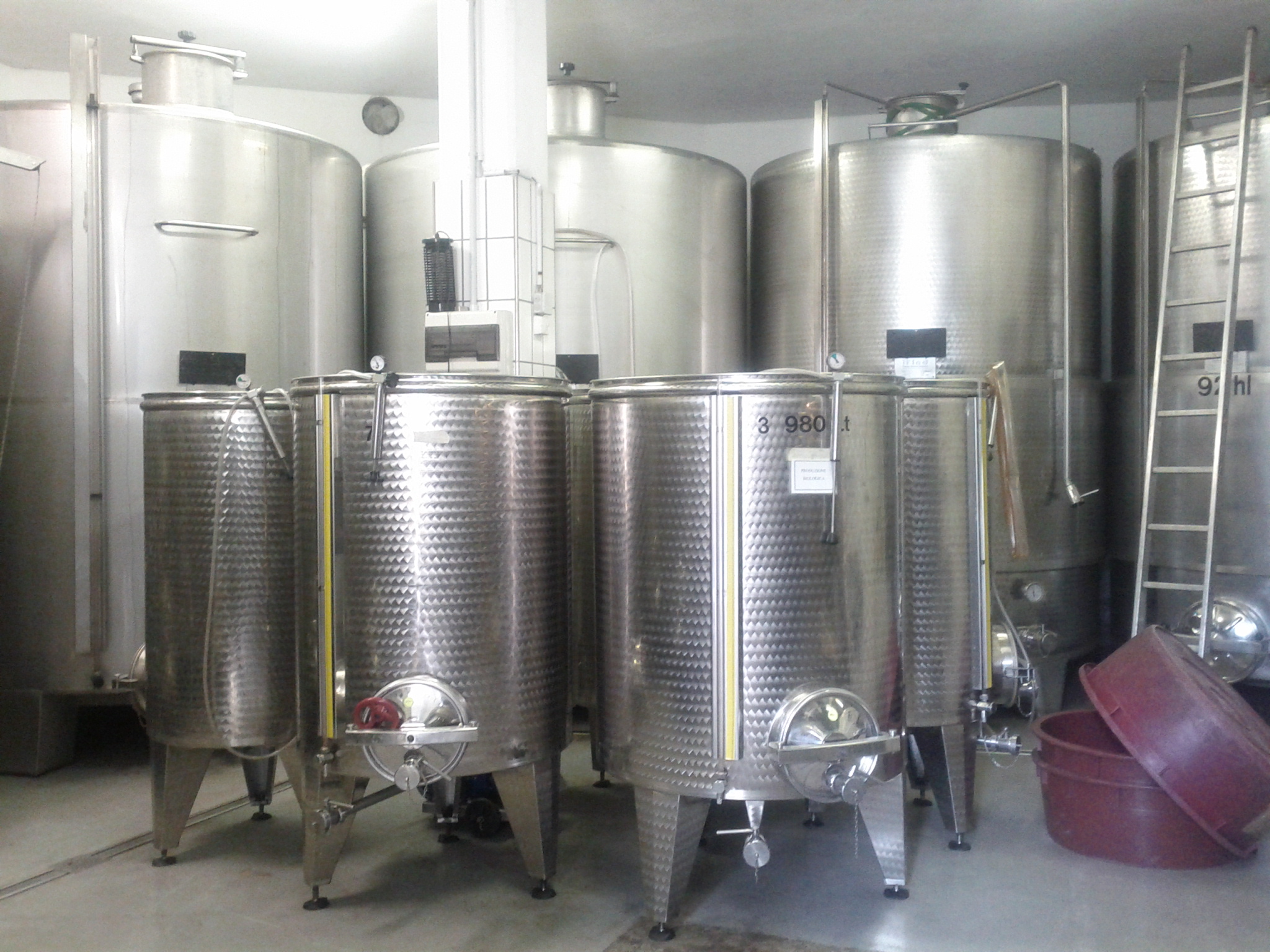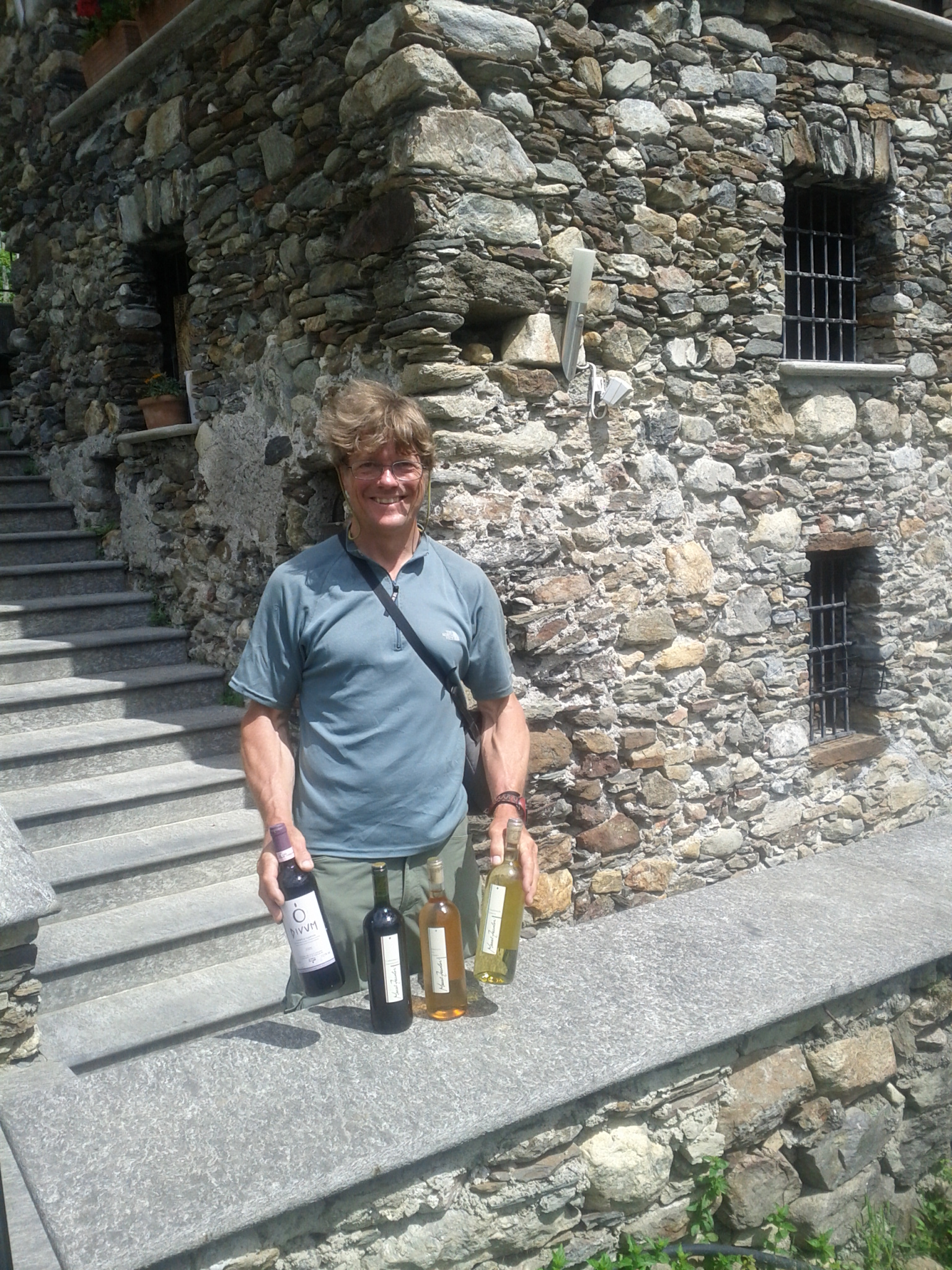Swiss wine, made in Italy
"If you don't believe, you can't do it," Marcel Zanolari explained as he pointed out a neighbor’s wine terraces.
The neighbor’s vines grew out of ground covered in brown, dead weeds. He had given up on the natural, no-chemical bio (organic) approach after his first year, which had been disastrous. Marcel has had his disastrous years, too: in 2008 he lost his entire crop of grapes when rain fell at the wrong moment of flowering. But if you stick with it, learn from mistakes, and suffer the lean times, then farming organically is actually cheaper, he says, including his eventual dream of using horses to supplement tractors in cutting the grass and trimming the vines.
Marcel and his father are both Swiss, though the ten hectares of leased vineyards scattered over 30 parcels in the Valtellina valley are all on Italian territory, including the wine cellar where Marcel turns a diversity of grapes into many different wines. He says you can claim your production to be Swiss if you’re within ten kilometers of the border and follow Swiss standards. But he prefers to be honest that his wines are actually Italian grown and made, even though all the production is sold back into Switzerland through his father Giuliano Zanolari’s wine marketing firm La Torre in Poschiavo (Switzerland).
Growing “biologically” has a different energy, he says, “I can feel it.” Sometimes when he comes back from his neighbor’s fields that have recently been treated his skin actually hurts. We could strongly smell the pesticides and herbicides as we parked by such vines before walking to Marcel’s, where the grass was green and fresh shoots on the vines grew tall to give strength to the roots – Marcel prunes in winter, but keeps the grapes themselves exposed to help prevent mildew.
Grape growing clearly requires huge amounts of effort, which explains in part why more and more land is reverting from vineyard to forest, which takes place within ten years of abandonment. Marcel employs two people simply to repair the stone walls. He’s gradually converting his land from vertical to horizontal rows of vines, which allows the use of labor-crunching tractors. He wants to use horses eventually, but could never switch completely since even draft horses tire too quickly, plus the land is scattered so widely. There’s a lot to learn about farming in a biodynamic way, but in the long run, he says, it’s the only way for the land to be sustainable.
I’m no sophisticate, but the short-term results I tried sure do taste good. There’s a glass next to me now.




You can find an overview of ongoing debates with our journalists here . Please join us!
If you want to start a conversation about a topic raised in this article or want to report factual errors, email us at english@swissinfo.ch.